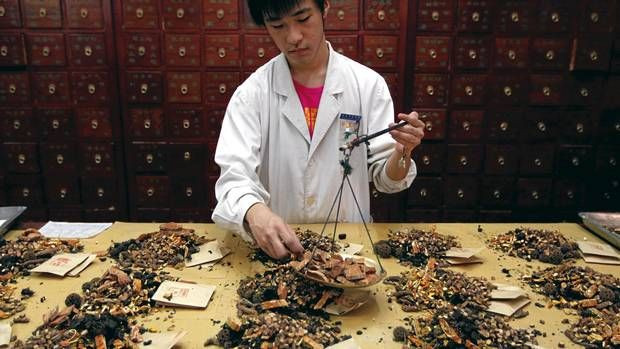Nestle Ventures Into Traditional Chinese Medicine; Joins Force With Hong Kong Billionaire Li Ka-Shing’s Chi-Med

China is the only country in the world where Western and traditional medicine are practiced alongside each other at every level of the health care system. And Wednesday saw the formation of an interesting pair: The world’s No. 1 food group, Nestle SA (SIX: NESN), and Hutchison China MediTech Limited (LON: HCM), the drugmaker controlled by Hong Kong billionaire Li Ka-shing, joined forces to develop nutritional and medicinal products from plants.
Nestle Health Science, a fully owned subsidiary of Nestle, and Chi-Med will each own half of the Nutrition Science Partners Ltd. venture, the companies said in a statement.
The collaboration gives Vevey, Switzerland-based Nestle access to Chi-Med’s traditional Chinese medicine library of more than 50,000 extracts from more than 1,200 plants and its expertise.
“We believe traditional Chinese medicine has a real potential to become part of innovative solutions,” Luis Cantarell, CEO of Nestle Health Science, said on a conference call.
For more than 3,000 years, traditional medicine has been an integral part of Chinese culture and the predominant treatment for most of the population. Traditional Chinese medicine often contains a number of animal and plant components that are meant to act synergistically to treat a particular ailment.
The first documented source of Chinese medical theory, the Huangdi Nei Jing, or “Inner Classic of the Yellow Emperor,” was written between 300 and 100 B.C.
In recent decades, the practice has gained popularity in countries around the world, creating a multimillion-dollar global industry. According to Chinese news reports, the industry is expected to grow at 12 percent a year to 2015, when it will be worth more than 550 billion yuan ($88.3 billion).
Initially, the joint venture will focus on gastrointestinal health, which by Chi-Med’s estimate, is a market worth up to $6 billion. The partnership may extend into metabolic diseases and brain health in the future, the companies said.
The first treatment under development at the new Nestlé joint venture is for irritable bowel syndrome, which is expected to yield results around 2014. Depending on the eventual results, it would then be commercialized as a drug, the Financial Times reports.
Nestle shares rose 1.17 percent to 60.6 Swiss francs in Wednesday’s Zurich trading, while Chi-Med advanced 4.65 percent in London, for a gain this year of 38.5 percent.
© Copyright IBTimes 2024. All rights reserved.





















